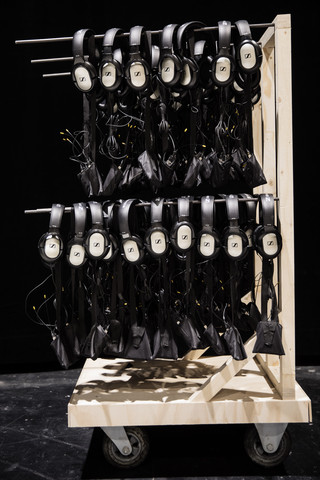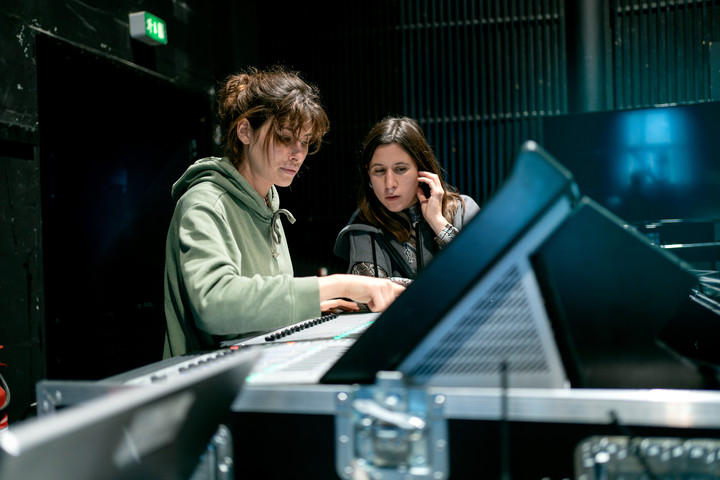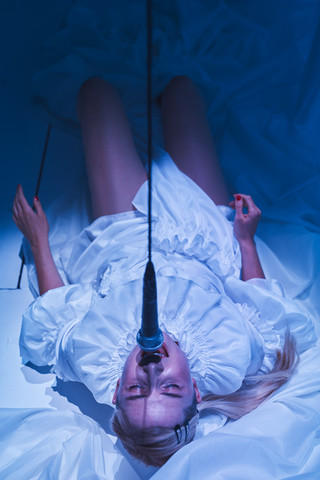Sound
At the artistic Bachelor's programme in Theatre and Performance Making you can specialise in Sound and work with sound from a dramatic perspective.
To study at the Sound specialisation you must have basic technical skills and an urge to work with sound in the performing arts in a creative and curious way.
The specialisation takes a conceptual approach to the process of creation. You will learn to create sound universes for the performing arts in which the sound must function, along with other forms of artistic expression, in one fully integrated concept.
The relationship between sound and space is a fundamental focus on the programme, and you will work on methods such as multichannel composition. Theory and practice are linked closely together. The tools you acquire through lessons in subjects such as synthesis, electroacoustics, field recording, sound systems and audio software will be continuously put into play in your work to create auditory concepts and larger sound productions. You will also learn to analyse acoustic challenges and create the best possible technical setup for any performing arts production.
You will have access to all the necessary technical equipment, including large digital consoles (DiGiCO, Allen&Heath etc.), a large range of speaker systems (d&b, Meyer, Alcons etc.), wireless systems (Shure and Sennheiser) and more experimental equipment such as transducers and solenoid motors. The school has three professional sound studios: one for synth experiments and recording/mixing in stereo, one for 7.1 surround sound and one for 12.1 multichannel composition.
Throughout the programme there is a strong focus on co-creation across disciplines. You will be involved in large and smaller projects with students from other specialisations and programmes, and will learn to communicate your artistic intentions into other disciplines, and to develop sound concepts as part of a coherent staging concept.
The sound specialisation is giving me the all the skills and challenges I need to let me develop as a sound artist. The course covers everything from conceptual sound design, performance studies and sound art to sound engineering and musical skills, and I can use everything I learn through teaching in my own artistic work outside the school – whether that’s as a musician, a sound designer, a composer or in a completely different area. The programme makes me want to experiment and create, and I’ve also met a fantastic network of talented stage artists who I appreciate very much!
- Rasmus Øllegaard Juncker (student 2016–2019)




career and working life
Once you have completed the programme, you will have all the necessary skills to participate in professional stage productions as well as the tools to create auditory works in other artistic contexts. Most sound designers work on a freelance basis, and there are generally very good opportunities for professionally relevant employment. There are also strong prospects for being permanently employed at a theatre.
ADMISSION
Two students are admitted each year. Note that the application deadline is typically in December of the year before the start of the course.
All students are admitted on the basis of an entrance exam in which an admission committee assesses applicants' suitability based on set criteria.
The conditions and audition criteria apply to Danish as well as international Full Degree students.